A hurting stalemate? The risks of nuclear weapon use in the Ukraine crisis
By Francesca Giovannini | March 2, 2022
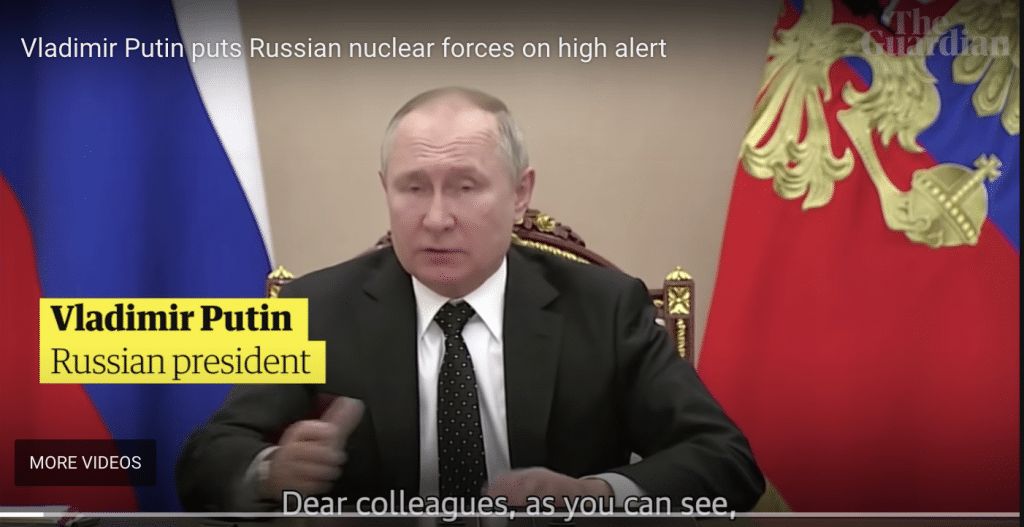
Nuclear experts are trained to think the unthinkable. So, here is an unthinkable scenario that might actually happen in real life:
The battle over Ukraine drags on. From both the European Union and the United States, fresh weapons and other supplies continue to enter into Ukraine and allow the Ukrainian forces to fight on. The battle reaches what conflict resolution expert William Zartman calls “a hurting stalemate” situation. The balance of forces on the ground is not completely or perfectly symmetrical, but what was once considered a completely disproportioned asymmetry of forces has been gradually re-equilibrated, in favor of the Ukrainian forces.
The crisis becomes a war of endurance.
Theories of international relations tell us the defenders have a strategic advantage. They know the terrain in which they fight, and above all they have an absolute resolve to repulse the attacker. What news outlets report largely confirms these theoretical arguments. The extraordinary competence of the Ukrainian military is further strengthened by an unprecedented level of civilian mobilization and resistance.
Meanwhile, Russian forces meet considerable challenges in re-supplying their forward-deployed troops. The army has visibly underperformed. No strategic objective has been achieved. And for the first time since the beginning of the conflict, the Russian media acknowledge the country’s first causalities. As the situation endures, Russian troop morale wanes. Fighting becomes sloppy, casualties continue to climb on the Russian side.
Generally, in a situation of hurting stalemate, according to Zartman, the costs of continuing the struggle exceed (oftentimes greatly exceed) the benefits to be gained. Yet, it is reasonable to assume that for Putin, losing the war with Ukraine is a non-option. He has claimed Ukraine is an indivisible part of the Russian identity and territory. In addition, with two-thirds of Russia’s entire military forces on the ground, losing a war against what is perceived as a much weaker military would inflict major reputational costs to the Russian Federation and to Putin.
Neither might he be willing to accept a negotiated solution that leaves the current regime in power. The costs that Putin has been already willing to pay for his invasion of Ukraine have been astronomical. Settling for a half-baked victory seems very unlikely. For the costs of the invasion to be worth it, Putin needs a decisive victory.
The question of what “winning” means for Putin comes into play.
What options does Putin have? A decision by Putin to use tactical nuclear weapons seems, perhaps, no longer completely far-fetched. In fact, he ordered Russia’s nuclear forces to a higher alert status on Sunday, although it was unclear what the order meant in practical terms. The land- and submarine-based nuclear missiles of Russia and the United States are generally thought to be kept at high readiness at all times.
Today, as I write this article, a scenario that leads Russia to use nuclear weapons in Ukraine seems improbable. Like many others, I make three assumptions: that Russia has a strong interest in not destroying Ukraine, because Putin wants to occupy it; that even though Putin is a thug, he is not a crazy enough thug to break a taboo against the use of nuclear weapons in war, a taboo that has held for 75 years; and that there are plenty of other options that the Russians can exercise in subduing Ukraine.
But perhaps those assumptions should be questioned.
First, the assumption that Putin wants to avoid destroying Ukraine hardly stands the test of reality. While it was true that in the first phase of the conflict the Russians took measures to reduce civilian costs and infrastructure destruction, in the last 24 hours, Russian tactics have shown a clear change in targeting and pace. The targeting of residential buildings, gas pipelines, and energy stations is indicative of how much the Russians now feel the urgency of time and the fear that Ukrainian resistance is coalescing. The longer the conflict drags on, the more the Russians will have to escalate to break the “resolve” of the Ukrainians. Ultimately, having a decisive victory might matter more to Putin than the preservation of infrastructure. And if Putin’s goal is to make Ukraine a buffer zone between Russia and the West, limiting damage on Ukraine soil might ultimately count little in Putin’s mind.
As regards the second assumption: How much crazier would Putin need to be, to break the so-called “nuclear taboo”? It seems to me that he has been willing to break the taboo regarding national sovereignty more than once. While I don’t think he will take the decision of using tactical nuclear weapons lightly, I also don’t believe that the fear of breaking a precedent (real or imaginary) is something that would constrain him. It is interesting also to note that Putin has repeatedly referred to nuclear weapons during this crisis. On Sunday, he ordered his country’s nuclear forces on high alert in what he said was a response to aggressive statements from Western countries. In the speech that announced the invasion of Ukraine, Putin claimed that “Ukraine was on the path to acquiring nuclear weapons.” No proof exists of course to support such a claim, but it is interesting to note how preeminent the nuclear argument plays in Putin’s thinking. More important, the Russians apparently are considering a retaliatory measure to push back against the West’s support of Ukraine; it would include Russia leaving the New START nuclear arms control agreement, which caps the deployed nuclear arsenals of the United States and Russia—a move implied on Saturday by former Russian President Dmitry Medvedev, currently deputy head of Russia’s Security Council.
Finally, we know the Russians still have plenty of conventional and non-nuclear strategic options. They have not deployed their full cyber capabilities. More tanks are being sent in. Use of swarm drones and other “exotic” weapons might also be in the planning phase. And several of my colleagues at the Belfer Center have pointed out, Russia has enough fire power to destroy Ukrainian cities without having to resort to nuclear weapons.
In addition, as this mad war rages on, windows for diplomacy and negotiations might appear along the way. One seems to be opening tomorrow, with talks between Russian and Ukrainian delegations set to begin in Belarus.
What makes the use of tactical nuclear weapons plausible (although not likely) to me is their unequivocal messaging value. The use of one or more tactical nuclear weapons would be an unmissable attempt by Putin to break the unity of the West, and to test the resolve of some NATO countries. It would also signal once and for all his willingness to do whatever it takes to achieve his political and strategic goals.
I don’t claim this is a likely scenario, but I do worry.
I have celebrated the military victories of the fierce and proud Ukrainians. I cried over the images showing on TV. I gasped in reading the messages of President Zelensky confirming over and over his unshakable will to stay and fight with the Ukrainian people until the end. But a more ominous scenario is emerging and with it a catastrophic dilemma for both President Zelensky and the West. The longer he and the West resist, the more they might involuntarily push Putin to consider further escalations, including to the nuclear threshold. Should Zelensky surrender and leave, hoping to appease Russia? Or should he continue to fight with his people, with increasing help from the West, to defend their right to live freely? Is the fight for freedom worth the price of a possible nuclear attack?
This is an existential dilemma without a perfect solution, one that nobody should ever face. It’s a dilemma that could haunt us all soon, unless sanity is restored by renewed diplomacy.
Together, we make the world safer.
The Bulletin elevates expert voices above the noise. But as an independent nonprofit organization, our operations depend on the support of readers like you. Help us continue to deliver quality journalism that holds leaders accountable. Your support of our work at any level is important. In return, we promise our coverage will be understandable, influential, vigilant, solution-oriented, and fair-minded. Together we can make a difference.
Keywords: Putin, Russia, Ukraine, hurting stalement, nuclear alert
Topics: Nuclear Risk, Nuclear Weapons


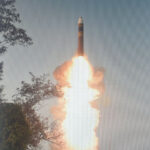



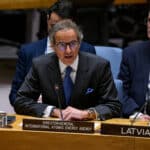
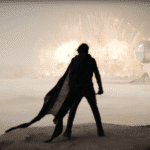
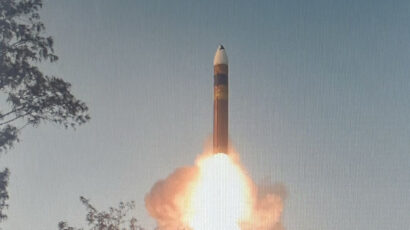
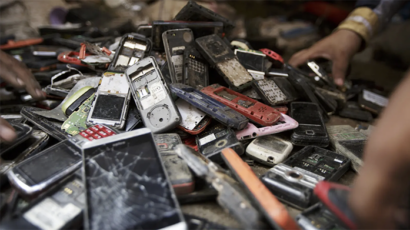

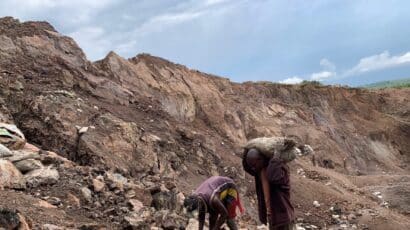


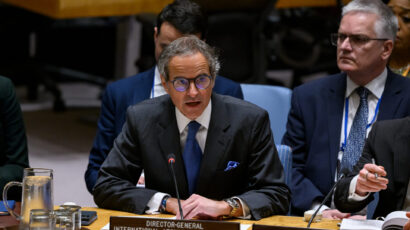
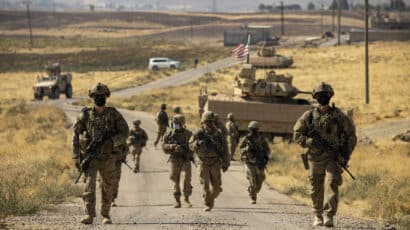
What’s the role of China in this? Perhaps in cautioning Putin and others?
Good article, first one I’ve seen that makes sense. Putin’s actions only make sense with the nuclear option to destroy the west. He would have know attacking Ukraine will have disastrous outcomes. The only way this all makes sense is with the nuclear option. He has the hypersonic missiles, deep underground bunkers, nato is expanding. He’s getting old, he’s being strangled by all sides. Pressure cooker is hitting the max pressure. Please tell me I’m wrong.
You’re wrong. Putin has been made out by Western media to be an inhuman monster. His actions in Ukraine are certainly evil, but even Hitler had people he loved. Putin has a family. Are you suggesting he’s content to annihilate all life on Earth because he’s “getting old” (he’s pushing 70, by the way, not 90). You further conflate “use of nuclear weapons” with the absolute worst case scenario of a nuclear apocalypse. Cooler heads outside of Russia could prevail to de-escalate even in the case of a tactical nuclear strike. This type of thinking is silly and reveals a… Read more »
Okay look this is real, this is happening- it’s not inflammatory to discuss Russia using nuclear weapons. Right now 3/23/2022 there is a summit in Brussels to figure out counter offenses to Russia using small payload tactical nuclear missiles and possible chemical warfare. It’s all on the table – the worst case scenario. If anything, I think the author missed understanding the willingness of Russia to use nuclear weapons – it’s in their strategy, it’s part of their playbook to win. It’s pretty obvious there are no ‘cooler heads’ in Moscow, obvious too that the Russian military is suffering humiliating… Read more »
But if russia is doomed to fail without nuclear weapon, why would Putin start all this? What give Russia its veto right in UNSC? So i say nukes are certainly not off the table now.
As I understand, Putin’s policies for the last decade caused Russia, outside a few major cities, to have negative growth. I mean the average status of all infrastructure: buildings (private and public), roads, utilities etc. In extreme cases, whole settlements withered. Though I hope my understanding is wrong.
If my understanding is correct, with such a record HOME, Putin might be not-that-worried about causing negative growth here and there outside Russia, as a result of using more devastating weapons.
We are a hairs breath from going out.
And still we lie to ourselves.
The epitaph of humanity will read:
“Oh “s**t was that a flash?”
Update your clock.
I believe the fight for freedom is worth any risk. If Ukraine and the West give in to Russia and essentially give Putin what he wants what message does that send to all of the other former East Bloc countries? What message does it send to Putin? As was learned at the beginning of WWII appeasement absolutely does not work. If Russia is not stopped now where will they invade next?
“The longer he and the West resist, the more they might involuntarily push Putin to consider further escalations, including to the nuclear threshold.” This is a totally legit presumption. Unfortunately, it looks like Putin has some bigger imperialistic plans and I am afraid he will not stop even if he gets Ukraine. He is indeed obsessed with nostalgia for the mighty USSR. He knows he has a decade or less to do something about it because he is 69yo. However, kneeling down to the aggressor and letting him get what he wants will not stop him from using these tactics… Read more »
i was an NBC NCO during the cold war period as well as after the wall fell. it was the soviet battle strategy to use tac nukes on the battlefield during the initial phase of an offensive. i pray that i’m wrong about this but due to problems with the current russian offensive i believe that these weapons may be coming into play.
Mr. P has an amazing excuse up his sleeve: US nuked Japan to finish fascism, we will do the same for Ukraine- kind of “you don’t have any moral superiority”. I doubt if the West would respond similarly, so this is quite “nice” option for him to exit victorious from all this mess… Hope this will never happen, I firmly believe there still are some sane people around him.
Very good article. Provides astute and balanced perspective on possibility of some form of nuclear attack – or not. Question: What if Putin decides to try and save face AND subdue Ukraine AND do some harm to Western nations, even at the cost of hurting his allies and his own country? What if one of the nuclear power plants in Ukraine had a “catastrophic failure?” He could say, “See? This is why invaded Ukraine, because I knew they weren’t maintaining their reactors safely. I tried to stop this, but was prevented from intervening in time.” Another possibility – one of… Read more »
The first question one must ask are Russian goals. There are two obvious answers: (1) Control the Ukraine and (2) control eastern Ukraine to the Dnieper River. Because of the width of the Dnieper River that consists of a series of lakes, it is a natural defensive border against military assault or transfer of weapons to rebels. If he chooses the second, the cost of control is much lower because of the much smaller population and the near impossibility of outside support.
We could also apply a similar train of thought to the possibility of the US using tactical nuclear weapons. I think it is time for the Bulletin of Atomic Scientists to be even-handed in their analyses and viewpoints. Kissinger, the Pope, and many other voices seem to be calling for such balance.
This whole article is off tune. Putin is in a corner and sees his inevitable defeat. Now he is rattling the saber to try to scare the West into an unthinkable compliance with his bullying strategy. He uses tactical nukes, they won’t have much tactical battleground effect. If he attacks a western city, their will be a retaliation, and the US has probably messages this to them in some form. so what can he do: destroy the world because he doesn’t get his cookie; how primitive has the political establishment become, and how can the author speak about diplomacy with… Read more »